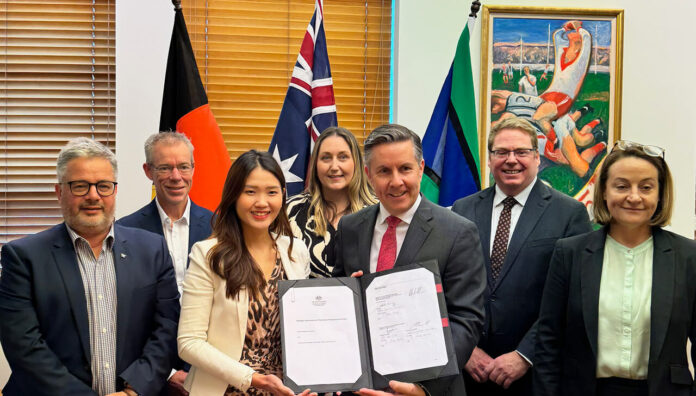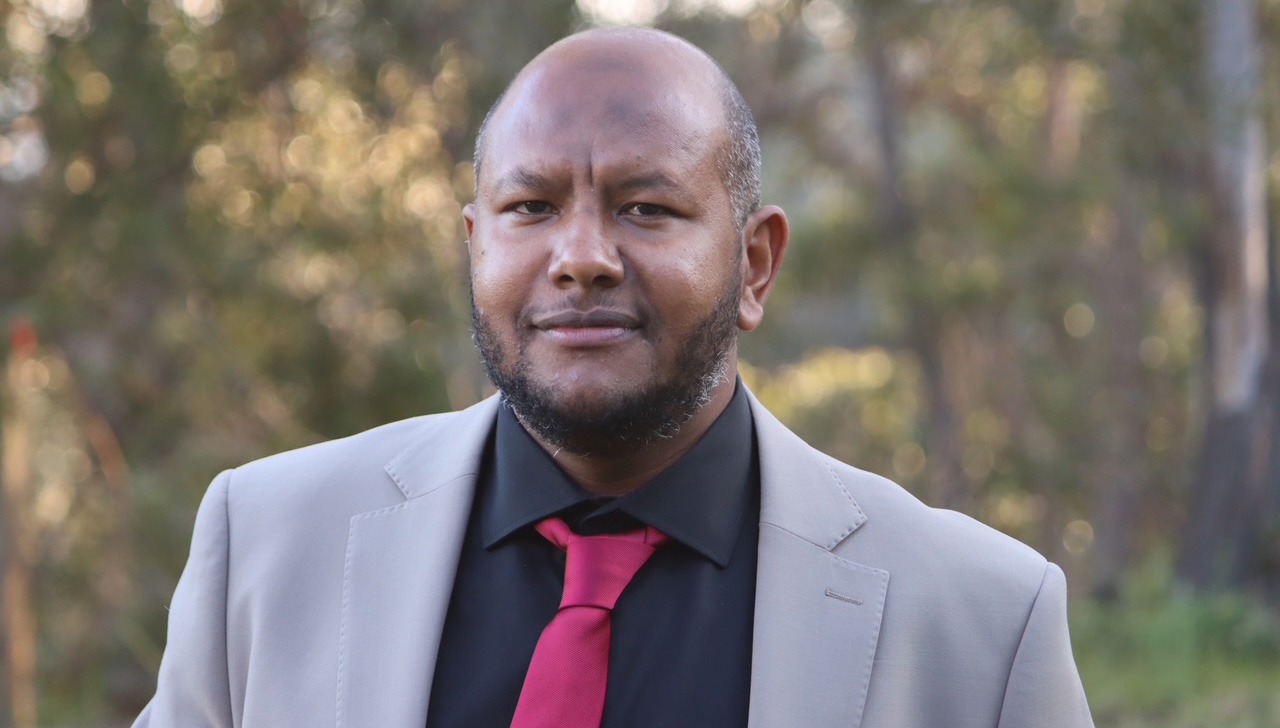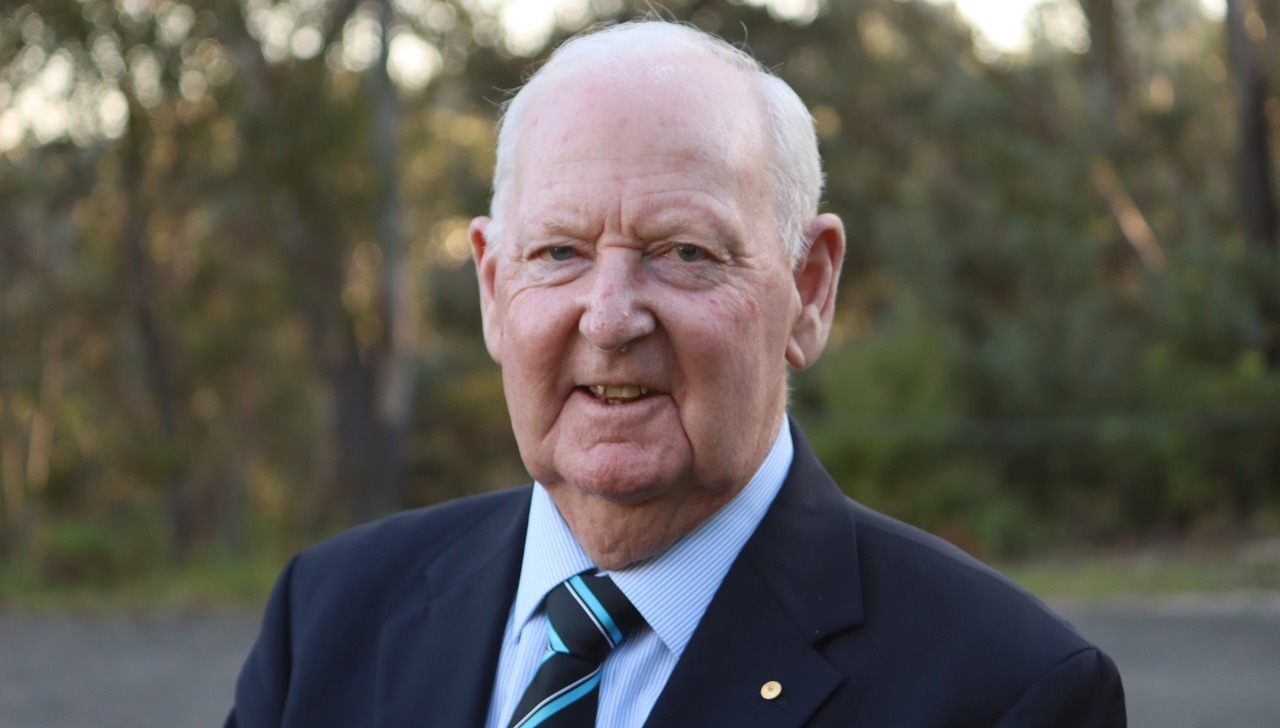
The much-awaited signing of the Eighth Community Pharmacy Agreement (8CPA) took place in Canberra today (3 June 2024), with the sector set to experience a $3 billion funding boost, with a grand total of $26.5 billion over 5 years.
Two agreements were confirmed, with Federal Minister for Health and Aged Care the Hon Mark Butler co-signing separate agreements – one with the Pharmacy Guild of Australia and one with PSA.
Both agreements will help to bring some much-needed certainty to the pharmacy profession by addressing challenges that cropped up after the 60-day dispensing measure was announced, while still providing relief to patients who need it the most.
‘The funding committed by the Albanese government in the 8CPA is positive for community pharmacies and will result in more accessible care for patients through a strong, thriving and viable community pharmacy network,’ said PSA National President Associate Professor Fei Sim FPS.
What’s in the 8CPA?
Minister Butler described the new community pharmacy agreement as a ‘win for patients’ with a central focus addressing the rising cost of living.
‘Australians trust their local pharmacist to look after their health needs,’ he said. ‘Patients … will benefit from cheaper medicines and more pharmacy services.’
The new measures include:
- Consumer Price Index indexation on dispensing fees paid to pharmacists by the federal government
- An extra Administration, Handling and Infrastructure (AHI) fee – the Additional Community Supply Support Payment – will be paid to pharmacists when they dispense a 60-day dispensing prescription
- An investment in developing new, and transforming existing, pharmacy programs
- Increasing funding by one third for the delivery of established pharmacy services such as dose administration aids (DAAs), MedsChecks and staged supply of medicines
- An increase in the Regional Pharmacy Maintenance Alliance
- A new Additional Community Supply Support Payment to replace the Regional Pharmacy Transition Allowance
- An increase in the number of patients pharmacists can provide funded DAA services for.
‘Patients will see cost of living relief via the 8CPA, done in a sustainable way that recognises the importance of community pharmacists’ role delivering world-class, affordable primary healthcare,’ said Trent Twomey, National President of the Guild.
What we already know
Ahead of today’s 8CPA signing, the government hinted at what was to come by announcing a range of measures in the 2024–25 federal budget earlier this month.
These initiatives include:
- a freeze on Pharmaceutical Benefits Scheme indexation for 1 year for patients with a Medicare card, and up to a 5 years for pensioners and other Commonwealth concession card holders so medicine prices stay stable
- lifting the DAA service cap from 60 to 90 services per pharmacy per week to improve access for patients.
Pharmacists can expect to remain as business as usual this month, before changes to remuneration and the indexation on dispensing fees kick off on 1 July 2024, with the 8CPA running until 30 June 2029.
What’s in PSA’s agreement?
The second agreement announced today is the Strategic Agreement on Pharmacist Professional Practice, signed by A/Prof Sim and Minister Butler.
The strategic agreement with the Australian Government contains a program of work to deliver contemporary fundamental standards and guidelines that define pharmacy practice across all areas of practice.
‘PSA’s Strategic Agreement on Pharmacist Professional Practice acknowledges that the role of pharmacists is changing and evolving, and with that comes the need to further develop the fundamental guidelines that underpin all elements and areas of pharmacy practice,’ said A/Prof Sim.
‘PSA’s strategic agreement provides a pathway to create data and evidence to demonstrate the need for long-term, continued funding for programs we know are critical to the Quality Use of Medicines,’ added PSA Lead Negotiator Dr Shane Jackson FPS.
What do pharmacists need to know?
There are some pharmacy services that were not addressed in the agreements.
Existing programs such as HMRs, RMMRs, ACOP, NIPVIP, ODT and workforce programs will continue to be funded under existing mechanisms.
In the meantime, the government will work with PSA and other stakeholders regarding pharmacy programs not included in the 8CPA.
‘We are focused on continuing our work with Minister Butler and the Department of Health and Aged Care which will define the design, implementation and evaluation of pharmacist-led programs which are not in the 8CPA,’ added A/Prof Sim.




 This article was sponsored and developed in collaboration with PSA and Carers NSW[/caption]
However, pharmacists may perceive medication errors or non-adherence as a carer’s inability to fulfil this role,
This article was sponsored and developed in collaboration with PSA and Carers NSW[/caption]
However, pharmacists may perceive medication errors or non-adherence as a carer’s inability to fulfil this role,

 Now a PhD candidate, former Sudanese refugee and NSW Pharmacist of the Year
Now a PhD candidate, former Sudanese refugee and NSW Pharmacist of the Year  David North OAM
David North OAM NSW Early Career Pharmacist of the Year Lily Pham
NSW Early Career Pharmacist of the Year Lily Pham




